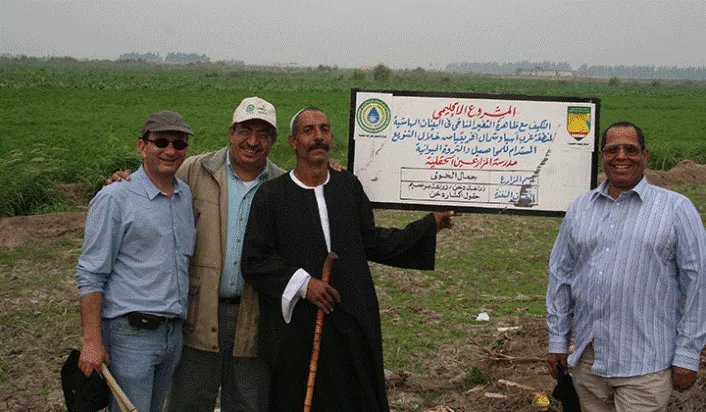The challenge
Recent changes in climate pattern, such as prolonged droughts, and extreme temperatures, as well as increased rainfall irregularity, intensity and distribution, have further negatively impacted the natural and agro-ecosystems in the region and increased the vulnerability of the people dependent on these resources for their livelihood. As the populations and economies of the region grow, the demand for food will increase and the water scarcity will worsen, resulting in further competition between the industrial, agricultural and domestic sectors.
The past decades saw an increasing number of farmers abandon their lands or face very low productivity, and this is having dire social and economic consequences necessitating the development of alternative, more productive, and sustainable farming systems appropriate for the socio-economic and changing environmental conditions of the region.
The story of Jamal Al Khouli
Back in 2008 I sold my 0.5 ha of land in the Nile basin, south of Eypt, and bought 2 ha of land in the north of Sinai. I found the land wouldn’t give the crops I was used to but in 2011 the extension staff of the Desert Research Center (DRC) introduced to me the benefits of a project they are conducting in collaboration with the International Center for Biosaline Agriculture (ICBA). The project was focusing on planting salt-tolerant crops for feeding animals. I thought that this was a good project that could benefit me so I gave up a piece of my land as a demonstration plot for their crops while I kept my old style of planting. In just few months, I noticed the difference between my land management and their management practices. In 2012, I attended a Farmers’ Field School training in Cairo and Sinai organized by ICBA and DRC. In that training and with the follow-ups of the DRC extension staff, I learned how to manage my land. They explained to me land preparation, fertilizer management, planting methods, irrigation scheduling and harvesting methods.
After that, and what I consider most important, I learned how to make silage and fodder blocks to feed my animals. This year, 2013, I attended again the second Farmers’ Field School training organized by ICBA and DRC in Cairo and Sinai and presented my experience to others including high officials and representative of international organization and NGOs.
I am very proud that the challenge I accepted is worth the experience I went through. I was among few who tried the new crops and management practices but now we are pioneers in the country. Hundreds of farmers in the neighborhood are now interested to get seeds of salt-tolerant crops and plant their fields with the management practices I learned. I am ready to help them all. With all of our efforts, I am sure that north Sinai will turn green in the near future.
